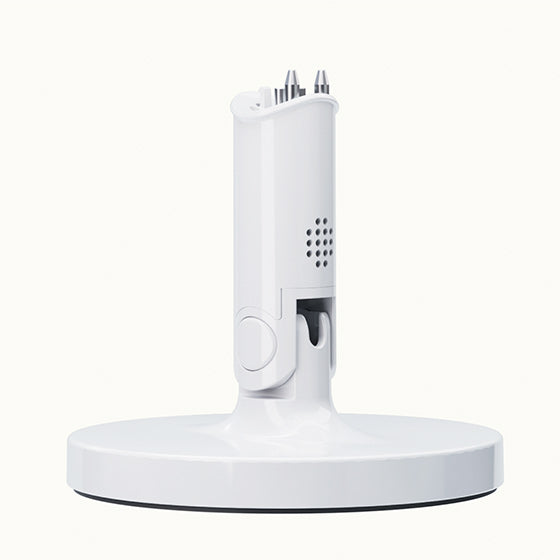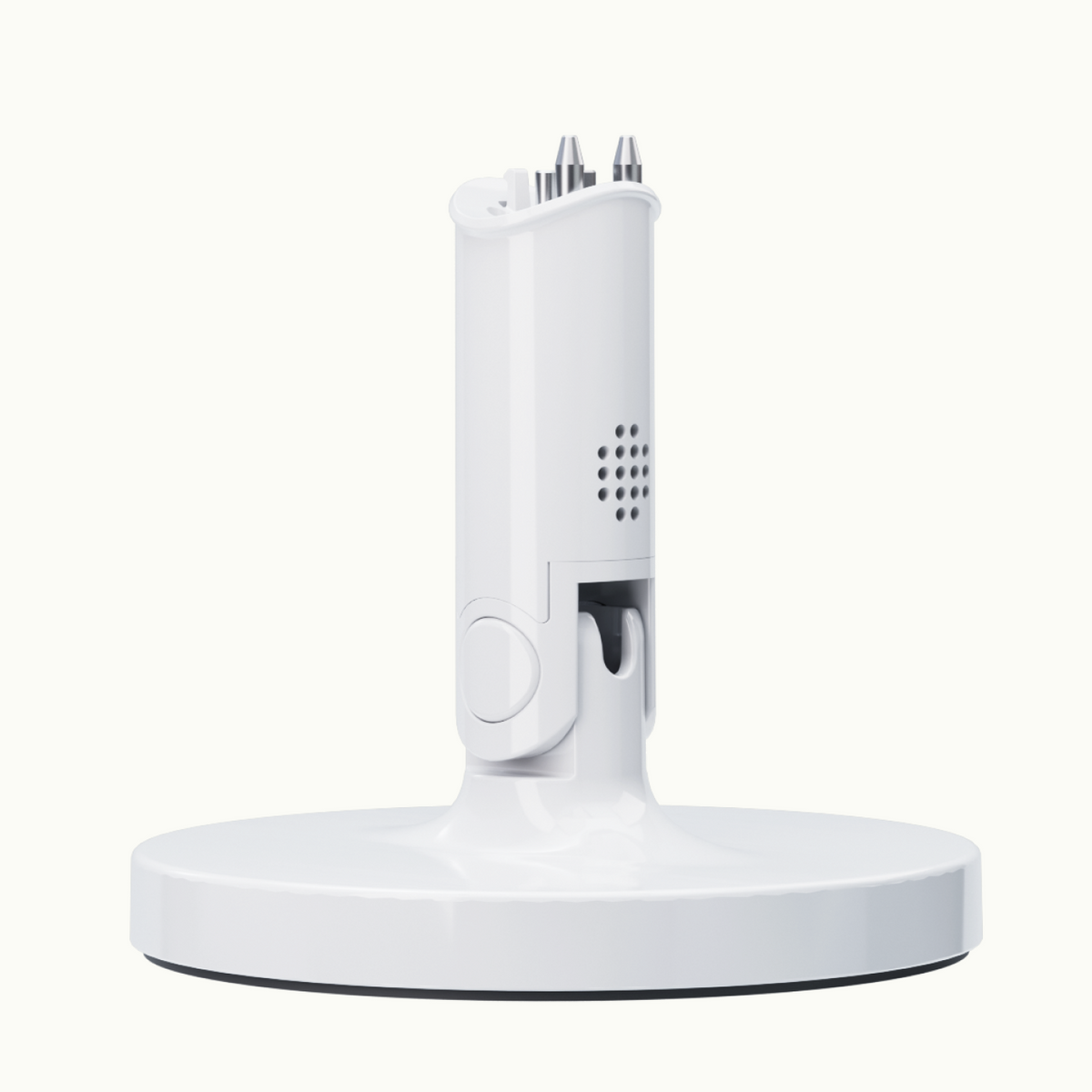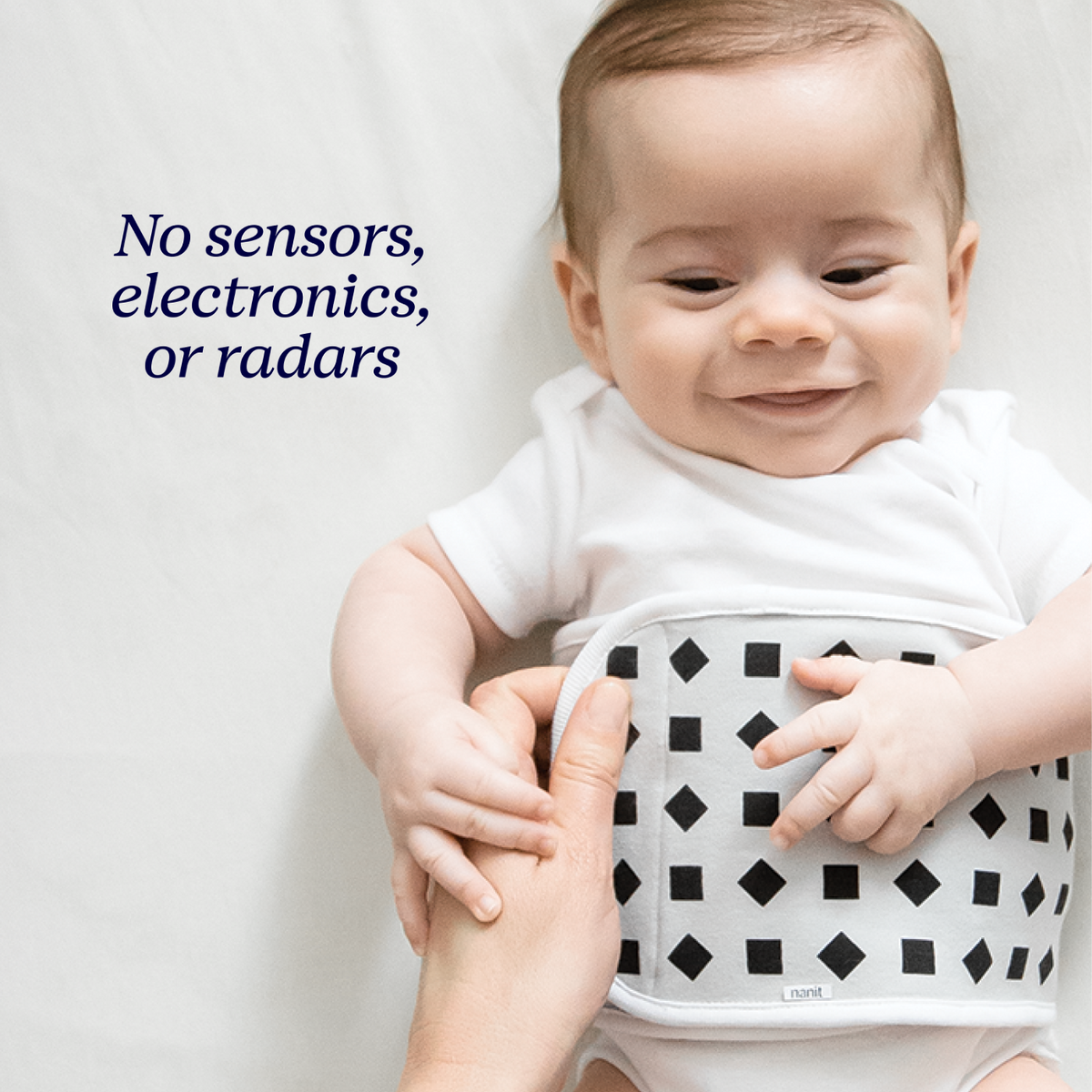The transition to parenthood is full of joys, but the learning curve is steep. When adapting to life with a newborn, it can be helpful to hear parenting tips from those who came before you. While the parenting journey will be unique for everyone, some general guidelines can make this new adventure a little easier.
Here, our comprehensive guide to advice for new parents, from mastering feedings to embracing the curveballs.
Key Takeaways
- During the initial weeks with your newborn, prioritize rest as you establish new routines for your family and learn about your baby's unique needs.
- Seek advice from trusted sources and explore technology that can support you as a new parent.
- If you're looking for added convenience and peace of mind, consider exploring smart-tech solutions like a baby monitor with camera, which provides valuable sleep and wellness insights to support your parenting experience.
Embracing parenthood with confidence
To gain confidence in most areas of life, knowledge is power. Parenthood is a balancing act of learning to trust your instincts and finding the right information to guide your way.
Studying parenting insights from trusted sources can certainly help make you feel more prepared. It’s also important to remember that milestones are specific to every individual baby. It can more helpful to look at a range, so you can keep an eye out for developmental moments that may require a change in routine. For instance, knowing when your baby is about to roll over is important, so you can transition out of swaddling—even if your baby hasn’t rolled over precisely on schedule.
As you discover your baby’s habits and needs, tracking their daily details can help you figure out what works best. Modern parents have the advantage of tech baby gadgets that can support them with this information. Tools such as Nanit’s Pro Camera and app track baby’s sleep habits, so you can make informed decisions about sleep schedules. Monitoring your baby’s particular data points can teach you how to parent confidently, as you understand what’s normal for your baby—at a very specific time in their development.
What to expect the first few weeks with a newborn
The first few weeks with your new baby are full of new joys and challenged like you’ve never experienced. Here’s what you may encounter in those first weeks.
What are the first 2 weeks with a newborn like?
You and your new baby are spending these first few precious weeks getting to know one another. And you’re both also recovering from the intense process of birth. For your baby, this means lots and lots of rest. It’s normal for newborns to sleep for the majority of the day in their first two weeks.
Feeding is the other big focus, and it’s perfectly OK if it takes some time for both of you to get the hang of it. And as your baby communicates their needs the only way they know how—crying—you’ll learn how to decipher which cries are related to each of their needs.
Why are the first 2 weeks the hardest with a newborn?
Even if you’ve read the books and planned ahead, you’ll never really know what parenthood is like until your baby arrives. It’s a big learning process for you both, and you’re doing it with the added bonus of sleep deprivation, as well as postpartum recovery.
The name of the game is to be gentle with yourself during this exciting, but exhausting process. It’s OK if your priorities shift a bit. If you’re able to sleep a bit during a little break, that’s more important than having a spotless clean house.
Some days may run smoothly, while others may be overwhelming. Parenting confidently will get easier the more you do it. As you and your baby develop a routine, the day-to-day routine can grow less daunting. And remember, part of being gentle on yourself includes accepting outside support. Don’t be afraid to ask for help if you need it, whether that be from family and friends, a parenting support group, or mental health provider.
Baby sleep basics
- Prioritize baby's sleep: Your growing baby needs rest for their rapid development. Newborns require about 16 hours of sleep per day during their first few weeks, often in three to four-hour stretches.
- Consistency is key: Although it may take until about the third month for your baby to start sleeping through the night, establishing a consistent sleep schedule can aid in improving your baby's sleep habits.
- Leverage sleep tracking: Tracking your baby’s sleep habits can help you establish a consistent sleep schedule. The more you know about your baby’s specific sleep needs, the easier it gets to trust your gut. Nanit’s sleep tracking technology provides you with helpful insights, from your baby’s sleep duration to integrated breathing wear monitoring. Some products that helps track breathing would include Breathing Band and Sleeping Bag - it safely detects your baby’s breathing motion in almost any sleep position–without sensors, electronics, or radars!–and sends real-time alerts should your little one need you
- Create an optimal sleep environment: Ensure the room is dark and quiet to help your baby drift off to sleep.
- Harness the power of white noise: White noise can calm your baby and drown out external disturbances. Bonus: They can sleep up to 2 hours longer with it! Check out our Soothing Sleep Bundle that comes with the Nanit Pro Camera and Nanit Sound + Light and both products include white noise and other sounds.
- Follow safe sleep practices: Always place your baby on their back for safe sleeping, as recommended by the American Academy of Pediatrics.
Navigating newborn nutrition: birth to 6 months
When it comes to infant nutrition, there’s no shortage of opinions. But again, the key is what is not what’s right, but what’s right for you and your family. If you choose to and are able to breastfeed, it’s common for babies to get hungry about every two to three hours. If you’re breastfeeding and your baby is having trouble latching, there are a lot of resources out there. You can try a support group, or ask your doctor to point you toward trusted experts.
Formula-fed babies may feed every three to four hours. They’ll also increase the amount of formula through their development, typically eating about four ounces for each meal at one month. By six months, this will gradually increase from six to eight ounces. If baby’s suddenly hungrier than usual, it could be a sign that they’re in the middle of a growth spurt.
What are the basic needs of a newborn baby?
Newborn care can essentially be broken down into a handful of categories.
- Sleep. Newborn babies need lots and lots of slumber for their quickly-growing little bodies.
- Feeding. Adequate nutrition is necessary to support your baby’s growth.
- Hygiene. Newborns only need baths two to three times a week, and shouldn’t be submerged in water until their umbilical cord has fallen off. Mostly, it’s important to keep them in clean diapers to prevent rashes.
- Bonding. Skin-to-skin contact is a significant part of connecting with your new baby.
- Pediatrician visits. Your baby’s first wellness check happens about three to five days after birth, to make sure they are sustaining their birth weight and doing well. It’s normal for them to lose a little weight at first, and your pediatrician will have a plan for you if so.
Understanding baby's cry: A guide for new parents
Babies cry for a range of reasons, and you’ll soon pick up on the subtle differences between their cries. Here’s a guide on what each cry means, so you can become fluent in baby.
What are the types of baby cries?
Before the wailing really kicks in, babies tend to make specific sounds, indicating the reason behind their impending cries. According to research by Priscilla Dunston, known as Dunston Baby Language, these are the sounds to listen for, so you can determine what baby needs.
- Hunger. If your baby is making a sucking motion, and their cry sounds a bit like a “neh,” it might be meal time.
- Fatigue. Sleepy babies tend to make an “owh” sound, while also giving other physical cues, such as rubbing their eyes.
- Discomfort. If your baby needs a fresh diaper, or is too hot or cold, they might express sporadic “heh” sounds.
- Colic. A gassy baby has two different crying mods. An “eh” sound indicates baby needs to burp, while lower gas sounds more like an “eairh” howl.
How smart-tech solutions support new parents
Confident parenting takes a mix of instinct and knowledge. Parents can find the latter through modern technology made just for them. Nanit’s smart baby monitors and sleep tracking features were built to help everyone get their best rest.
You can observe your baby’s sleep trends through the data provided by Nanit, so you can make decisions that make the most sense for your family. This extra boost can assist with sleep training and establishing a routine as your baby grows. Around 80% of parents who use Nanit report maintaining a consistent bedtime five nights a week. That means parents can get the sleep they need to be present caretakers and address their self-care needs.
Our last piece of advice
Veteran parents may tell you those first few weeks may seem long, but the years go by in a flash. It can be hard to acknowledge that when you’re deep in the trenches of new parenthood. But remember, there’s no such thing as a perfect parent. Everyone deserves all the extra support they can get. Whether it’s from Nanit’s smart baby products, the advice of moms and dads before you, or all of the above, every new parent needs a helping hand. With time and the support of your community, you’ll get the hang of it all.




















